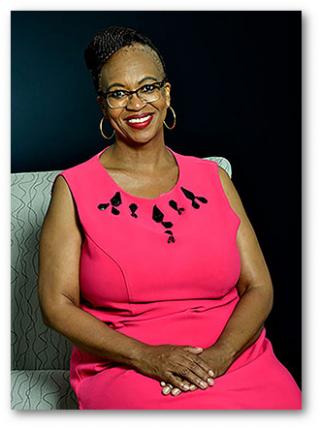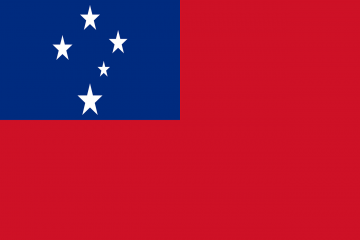Impressive growth in OERu registrations was primarily fuelled by the innovative reuse and remix of OERu courses by South African partners. These case studies provide viable strategic options for institutions seeking to respond rapidly to the challenges emerging in a post-covid world.
Last year, the OERu commenced the phased roll-out of micro-courses for its free first-year of study, registering 6,000 unique learners across 11 micro-courses by late December 2019. This year, the OERu has doubled its registration numbers in less than six months, reaching a cumulative total of 13,000 unique learners by early June 2020. Since January, OERu micro-course sites have served 110,000 users.
With the onset of COVID19 lockdowns in March 2020, the OERu shifted its small staff allocation to help facilitate the OER4Covid support project and therefore did not increase the number of published micro-courses for the first half of the year. The growth in registrations has been fueled primarily by OERu partners implementing innovative reuse and remix of existing OERu micro-courses, and by capacity development initiatives for educators during COVID19.
Under the OER4Covid initiative, in collaboration with the International Council of Open and Distance Education (ICDE) and the Commonwealth of Learning (COL), the OERu facilitated a record breaking capacity development offering of the micro-course: Open Education, Copyright, and Open Licensing in a Digital World, which attracted 2450 learners.
While the OER4Covid support initiative contributed to the impressive growth in registrations, the majority of new learners may be attributed to the two following examples of innovative remix and reuse of existing OERu courses by African partner institutions, both of which provide powerful models for future OER adoption in a post-COVID19 world.
OERu remix at North-West University
North-West University (NWU) in South Africa decided to incorporate an online micro-course for a Business Management (BMAN111) first-year level course offered through the Faculty of Economic and Management Sciences. NWU academics reviewed the OERu’s series of micro-courses for Introduction to Entrepreneurship and selected a number of learning pathways from the three OERu micro-courses to publish a new NWU version called Introduction to Business Management micro-course. This remix incorporated South African video signpost examples and a NWU branded version of the course was published. Learners were required to work through the micro-course materials as self-study and to complete a quiz developed by NWU, which counted towards the course participation for their final grade. Without the need for NWU to incur any new course development costs, this customised OERu online micro-course registered 2,789 learners. As NWU is an OERu partner, the OER Foundation provided free hosting for this online micro-course.
“This micro-course has transformed the way our students learn” said Clarise Mostert, Senior Lecturer, Business Management and Entrepreneurship at NWU. “Students developed critical digital skills for the 21st century through taking responsibility for their own learning and constructing knowledge from a wide variety of online sources.”
OERu reuse for professional development at the University of South Africa
The Institute for Open and Distance Learning located within the College of Education at the University of South Africa (Unisa) has led the response in digital literacy capacity development among in-service teachers, who are required to teach in online environments without the necessary skills to do so.

Prof Mpine Makoe, Unisa
Prof Mpine Makoe, the Commonwealth of Learning Chair in OER and Open Educational Practices, and her colleagues promoted OER options to address this need, reusing the OERu’s Learning in a Digital Age series of open online micro-courses.
“Since there was very little time to design and develop quality online materials from scratch, we reused OER micro-courses from OERu” said Makoe.
Using OER to “learn how to learn on the internet” is an unfamiliar approach for many new to online learning. The UNISA facilitators encouraged learners to use “WhatsApp” groups to support each other in navigating the online resources. “This was a successful strategy to support learners because they were already familiar with the technology.”
“The free OERu online micro-courses enabled Unisa to rapidly reskill educators in using a variety of digital technologies for teaching online during the COVID19 lockdown” said Dr Ramashego Shila Mphahlele, Lecturer in Early Childhood Education and one of the course facilitators. “Using these openly licensed materials, we could assemble an in-service training programme in a very short time. We plan to remix a version based on learner feedback for the South African context.”
The OERu will support Unisa to develop a local-branded remix of these micro-courses with free access to an open source web conferencing platform (BigBlueButton) to enable facilitators to provide synchronous guidance and support. The New Zealand National Commission for UNESCO has provided funding for this latter facility.
OERu’s Learning in a Digital Age was awarded the Commonwealth of Learning Award for Excellence in Distance Education Materials in 2019, and to date has recorded more than 6,000 registrations.
OER for a post-COVID19 world
In response to the massive disruption of education due to the COVID19 pandemic, UNESCO issued a call to support learning and knowledge sharing through Open Educational Resources. As demonstrated by the reuse and remix case studies from South Africa, OERu partner institutions have taken the opportunity to to augment their online delivery capacity in a very short time at minimal cost.
Image credit: Sprouting beans by Anan2523 published under Pixabay License.

